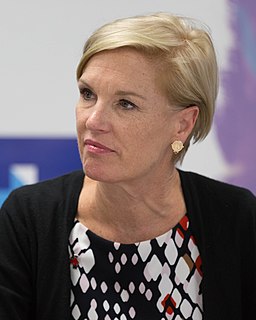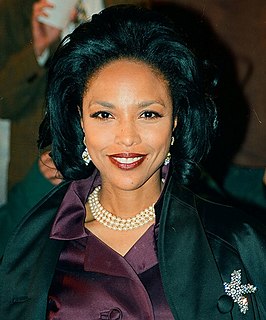A Quote by Cecile Richards
I think young people are recognizing the power of institutions, and we have to really dismantle a lot of the stigma and shame, culturally, but we also have to change things in terms of how government and institutions deal with this.
Related Quotes
We kind of reduce our responsibility to not saying the N-word and to condemning the Klansmen, rather than saying many of our celebrated institutions are systemically racist. Many of our institutions that deal with law enforcement or controlling the bodies of Black people are systemically racist. Many of our educational institutions are systemically racist. Many of our corporate institutions are systemically racist. We don't have those conversations, so things don't change.
I always feel we have to work both outside and inside of our existing institutions, so we have to really be careful about who we vote for and examine carefully our institutions and what they're meant to do and how they're being violated. I also think we need movements from below that oppose what Trump administration and administrations like it are doing to ordinary people.
Our marvelous new information technologies boost our power and opportunities for political engagement, but they can also disempower us by contributing to extreme political mobilization that sometimes overwhelms our institutions. These institutions were designed for rural societies operation at a tiny fraction of today's speed and with a citizenry vastly less capable that today's. It's unclear how they will change to adapt to the new reality, but change they must.
We have throughout our history been tested when it comes to the institutions of our democracy. And thank God our forefathers were smart enough to establish a government of checks and balances to make sure that power cannot be centralized in any one branch of government. And those institutions have proven themselves.
Right, we've got these institutions of media, these financial institutions, we have the means of distribution, we have the means of production, we have all these markets and maxims in place. How do we alter the consciousness, the fundamental unifying field? How do we influence change on that level to all of the world?
We all learn in school that the judicial, legislative and executive branches of government must check and balance each other. But other non state institutions must participate in this important system of checks and balances as well. These checking institutions include the academy, the media, religious institutions and NGOs.
Local assemblies of the people constitute the strength of free nations. Municipal institutions are to liberty what primary schools are to science: they bring it within the people's reach, and teach them how to use and enjoy it. A nation may establish a system of free government, but without the spirit of municipal institutions it cannot have the spirit of liberty.
We have not always been in sync on every issue in terms of our core values, in terms of her integrity, her truthfulness, her thoughtfulness, [Angela Merkel] doing her homework, knowing her facts, her commitment to looking out for the interests of the German people first, but recognizing that part of good leadership on behalf of the nation requires engaging the world as a whole, and participating effectively in multilaterally institutions, I think she's been outstanding.






































